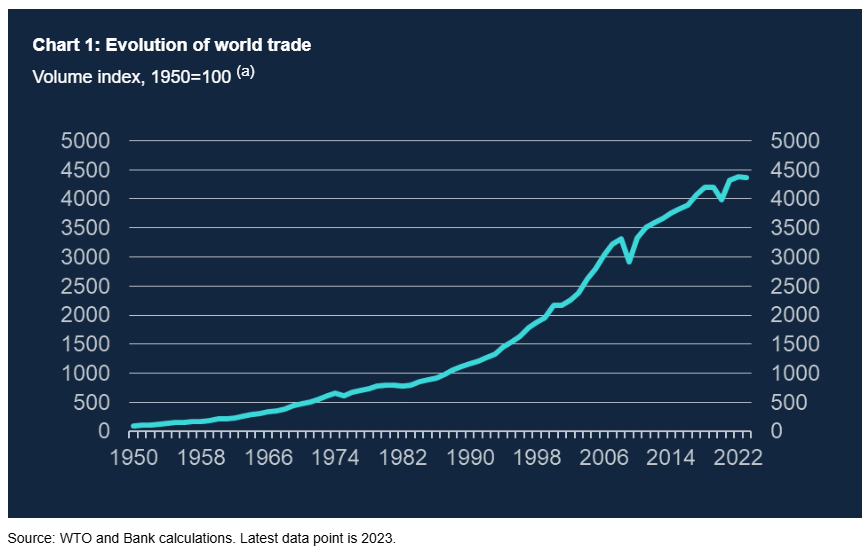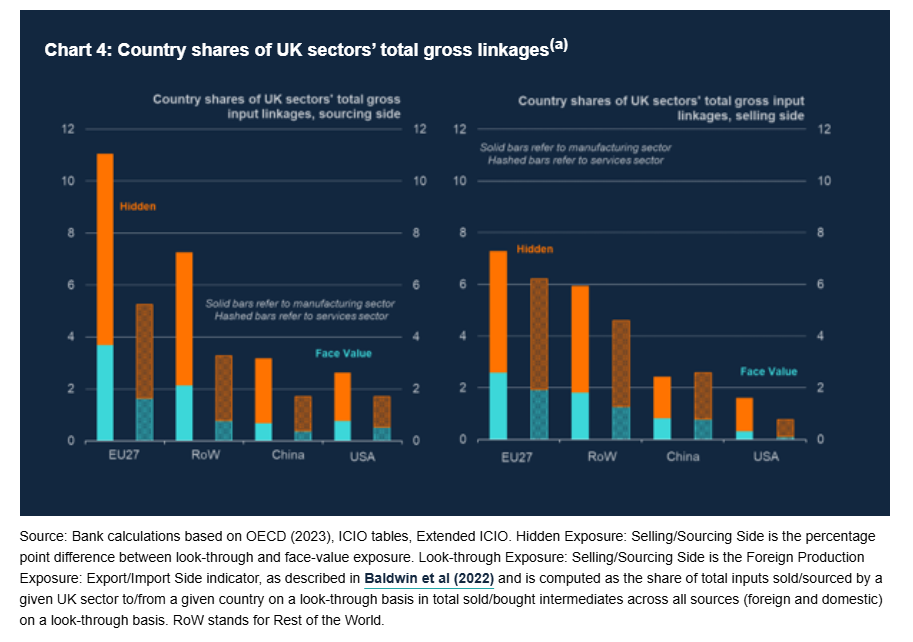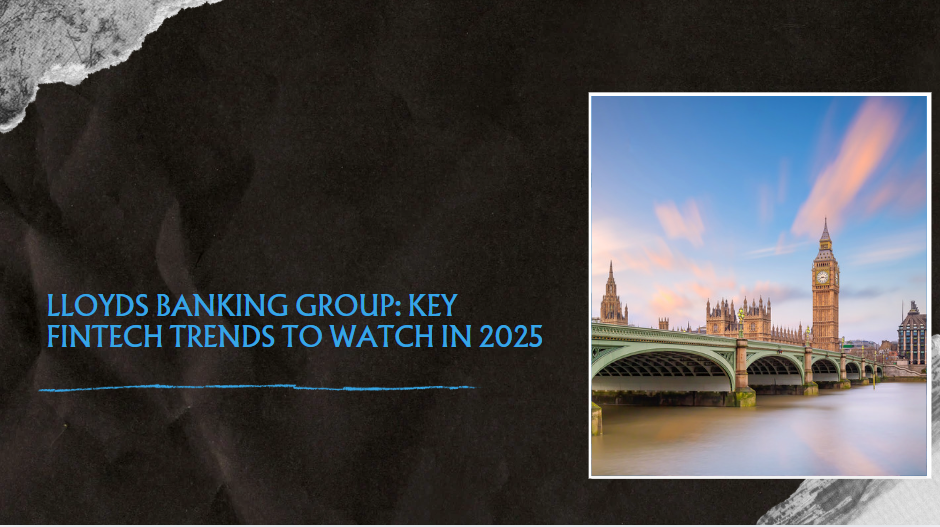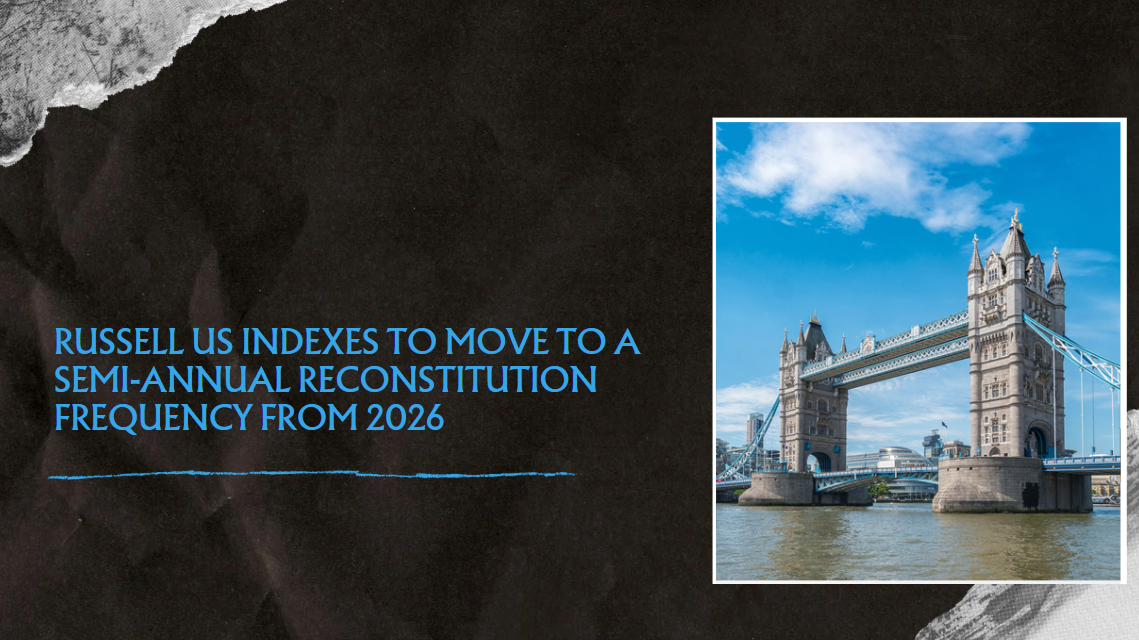Not Such an Island After All: Megan Greene’s Speech on the UK’s Economic Interconnectedness
In a speech delivered at the Institute of Directors on February 12, 2025, Megan Greene, a prominent economist, explored the extent to which the UK economy is impacted by macroeconomic developments abroad. Her analysis focused on two key channels through which global shocks reverberate in the UK: international trade and financial markets. Greene's insights are particularly relevant given the UK's position as a small, open economy highly susceptible to global events.

The UK's Trade Interconnectedness
Greene began by emphasizing the UK's deep integration into the global trading system, highlighting the country's vulnerability to external shocks through trade linkages. She noted that the UK's trade-to-GDP ratio is more than double that of the US and significantly higher than the G20 average, indicating a high degree of trade openness.

Key Trade Partners
The UK's trade relationships were dissected, with the European Union (EU) emerging as the most significant partner. Despite Brexit, the EU continues to dominate UK trade, both directly and through global supply chains. The US remains the UK's largest single-country trading partner, while China's role has grown substantially over the past few decades. Greene highlighted the importance of these relationships, noting that shocks originating in these regions could have profound impacts on the UK economy.
Trade Exposure and Supply Chains
Greene introduced the concept of gross trade exposure measures, which account for both direct and indirect trade linkages. She explained that the UK's manufacturing sector is more exposed to foreign shocks than the services sector, with significant hidden exposures through supply chains. For instance, the production of a car in the UK might involve imported engines from Germany, which in turn rely on components from China and Japan. This interconnectedness underscores the UK's vulnerability to disruptions in global supply chains.
Trade in Goods and Services
The speech also addressed the composition of UK trade, noting a surge in the relative importance of services trade over the past two decades. Services now account for over half of the UK's total exports, while the country has consistently run a trade surplus in services. In contrast, the UK has a significant trade deficit in goods, particularly in energy and food. Greene highlighted the inflationary implications of these trade patterns, noting that goods inflation is more directly vulnerable to external macroeconomic developments.
Financial Market Interconnectedness
Greene then shifted her focus to the financial channel, emphasizing the role of exchange rates and asset prices in transmitting global shocks to the UK economy.
Exchange Rates
The Bank of England's effective exchange rate index (ERI) was discussed as a tool for assessing the impact of exchange rate fluctuations. Greene noted that the sterling-dollar exchange rate plays a significant role in the ERI, influencing the UK's competitiveness and inflation dynamics. She also highlighted the increasing dollarization of UK trade invoicing, particularly with non-EU countries, which has amplified the impact of US dollar fluctuations on the UK economy.
Asset Prices
Greene explained how global asset price movements influence UK financial conditions. She noted that the UK's yield curve is significantly affected by global developments, with US monetary policy having a dominant influence. The speech included a detailed analysis of how US data releases, such as CPI and PMI, have a substantial impact on UK financial markets, highlighting the interconnectedness of global financial systems.
Risks to the Outlook: Trade Fragmentation
Greene concluded her analysis by discussing the potential implications of trade fragmentation for the UK economy. Using the ECB's global macroeconomic model (ECB-G), she explored a stylized scenario of tariffs imposed by the US on multiple countries, including the UK, and the subsequent retaliation.
Tariff Impacts
The model suggested that tariffs could initially boost UK growth and inflation through exchange rate depreciation, but over the medium term, trade diversion and declining global export prices would lead to disinflationary pressures. Greene noted that the model's assumptions, such as immediate pass-through of exchange rates to import prices, might not fully reflect real-world dynamics. However, the analysis provided a framework for understanding the complex channels through which trade fragmentation could impact the UK economy.
Policy Views
In her concluding remarks, Greene shared her current policy views, emphasizing the need for a cautious and gradual approach to monetary policy. She noted that while the disinflationary process is broadly on track, there are risks that recent economic weakness is driven by constrained supply rather than demand. Greene highlighted the importance of maintaining restrictive monetary policy to ensure a sustainable return to the 2% inflation target.
For more details, please refer to the full speech: Not such an island after all − speech by Megan Greene.






















































First, please LoginComment After ~